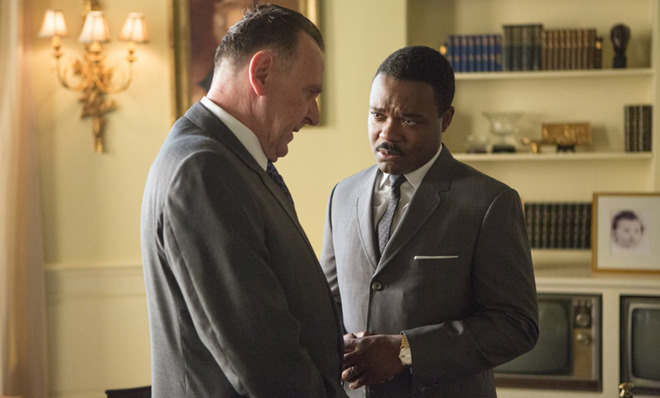When movies lie
Filmmakers often claim the right to rewrite history to suit their purposes. But changing history on film can have real-world consequences.


A free daily email with the biggest news stories of the day – and the best features from TheWeek.com
You are now subscribed
Your newsletter sign-up was successful
Pretty things up if you must. Embellish. Eliminate all nuance. But please, don't flat-out lie. That's my position on historical movies, and I'm sticking with it. Now, we all expect filmmakers to take some liberties when turning history into entertainment. But when the director of Selma, an otherwise marvelous film about the civil rights movement, slanders Lyndon Johnson as a backstabbing adversary of Martin Luther King, instead of his partner, well, that's more than creative license. That's "the opposite of the truth," as civil rights historian Diane McWhorter put it.
Hollywood has a habit of rewriting history. Remember the heart-pounding climax of Argo? In the (mostly true) Best Picture of 2013, the Americans who escape Tehran in a plane are chased down the runway by machine-gun-wielding Iranians in police cars. It never happened; the Americans left without challenge or incident. Don't be so literal! say the defenders of artistic privilege. An auteur's personal vision, and the narrative demands of storytelling, cannot be constrained by mere fact. But altering history has consequences: Movies are an emotionally powerful medium, and what is depicted on the big screen imprints itself on memory as truth. Most of the millions who saw Zero Dark Thirty now "know" that torture led to the capture of Osama bin Laden. Oliver Stone's JFK "reveals" the assassination as a conspiracy involving Fidel Castro, the CIA, the Mafia, and even poor LBJ. In the service of art and selling tickets, filmmakers can tell any story they'd like. But if they claim their work is based on a "true story," they have taken on an obligation. Try at least to get it right — or leave history alone.
A free daily email with the biggest news stories of the day – and the best features from TheWeek.com
The Week
Escape your echo chamber. Get the facts behind the news, plus analysis from multiple perspectives.

Sign up for The Week's Free Newsletters
From our morning news briefing to a weekly Good News Newsletter, get the best of The Week delivered directly to your inbox.
From our morning news briefing to a weekly Good News Newsletter, get the best of The Week delivered directly to your inbox.
William Falk is editor-in-chief of The Week, and has held that role since the magazine's first issue in 2001. He has previously been a reporter, columnist, and editor at the Gannett Westchester Newspapers and at Newsday, where he was part of two reporting teams that won Pulitzer Prizes.
-
 Mixing up mixology: The year ahead in cocktail and bar trends
Mixing up mixology: The year ahead in cocktail and bar trendsthe week recommends It’s hojicha vs. matcha, plus a whole lot more
-
 Labor secretary’s husband barred amid assault probe
Labor secretary’s husband barred amid assault probeSpeed Read Shawn DeRemer, the husband of Labor Secretary Lori Chavez-DeRemer, has been accused of sexual assault
-
 Trump touts pledges at 1st Board of Peace meeting
Trump touts pledges at 1st Board of Peace meetingSpeed Read At the inaugural meeting, the president announced nine countries have agreed to pledge a combined $7 billion for a Gaza relief package
